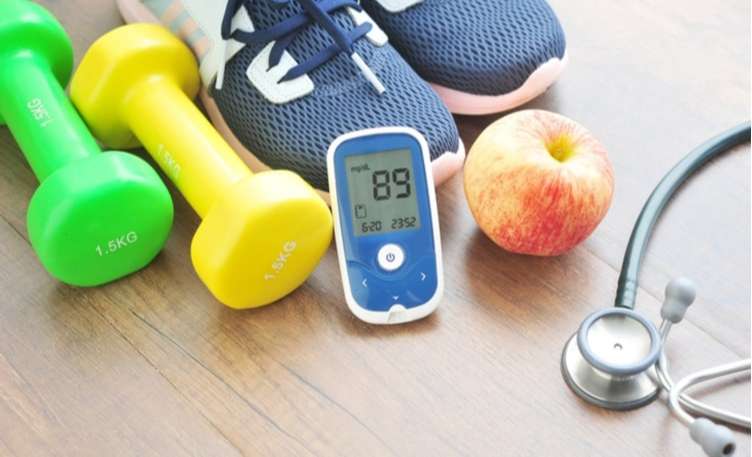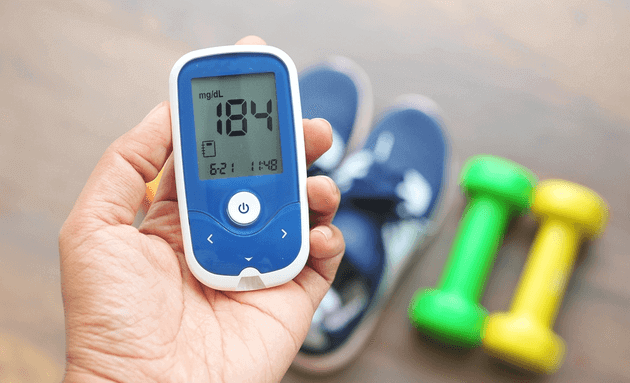Exercising Safely With Diabetes

If you’re a diabetic, exercise should probably be your best friend. A comprehensive exercise plan should be an integral part of any diabetes management plan. Let’s see why and how.
Why Do Diabetics Need To Exercise?
Exercise is an extremely important part of overall health and mental well being. No matter what medical condition you have, exercise will help keep your weight, blood pressure, cholesterol, and mental health in check.
For diabetics, there are added benefits to exercising daily.
Exercise can help you:
- Keep your blood sugar levels in control
- Improve your sensitivity to insulin
- Build muscle and shed excess fat
- Reduce the risk of heart disease and stroke
What Are the Health Complications Associated With Diabetes?

Diabetes increases your risk of developing other serious medical conditions like:
- Cardiovascular diseases
- Glaucoma
- Neuropathy or nerve damage
- Kidney disease
However, with the right treatment plan along with safe exercises, you can prevent or delay the onset of such complications.
What Are the Best Exercises for a Diabetic?
Medical experts suggest at least 150 minutes of moderate exercise per week. If you’re diabetic, here are some of the best forms of exercise you can do:
- Brisk-walking 30 minutes a day
- Cycling
- Swimming or water aerobics
- Resistance Band Exercises
- Pilates or Yoga
Talk to your doctor before starting a new fitness regime.
Exercising Safely With Diabetes

Once you and your doctor have discussed the best exercise routine for you, here are a few things you should remember:
Before Exercising
- The best time to exercise is one to three hours after eating when your blood sugar levels are high.
- If you use insulin, test your blood sugar levels before exercising. The ideal level of blood sugar is 100-250mg/dL.
- Test your urine for ketones - a chemical produced in the liver. Low insulin levels can lead to increased production of ketones while exercising, causing you to feel nauseous or disoriented. It can result in a life-threatening condition called diabetic ketoacidosis.
While Exercising

- Low blood sugar during exercise may be a concern. If you’re planning a long workout, check your blood sugar every 30 minutes. Stop exercising if your blood sugar level is less than 70mg/dL.
- Eat or drink 15 to 30 gms of carbohydrates, or half a cup of fruit juice, or glucose tablets to improve your blood sugar levels. Check your levels again in 15 minutes and repeat until your blood glucose levels become normal and safe for exercise.
After Exercising
The more strenuous your workout, the more your blood sugar will be affected. Low blood sugar levels can remain even after 4 to 8 hours after your exercise.
- Check your blood sugar as soon as you finish exercising.
- Have snacks like protein bars or roasted nuts mix which can help prevent a drop in your blood sugar level.
- If you do experience shakiness or dizziness, stop exercising and eat a small carbohydrate-containing snack like fruit, crackers, or glucose tablets.
Testing your blood sugar levels at intervals is as important as the exercise routine itself. Make sure you exercise at the same time every day and record your body’s reactions to exercise.






